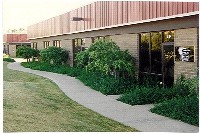
|
|
|||||||||||||||||||
|
| Commercial Customers | Security Systems | Music & Video Systems |
Your Best Source for Information on How to Secure Your Home
Welcome to our comprehensive source for information on securing your home. We are committed to providing you with the information you need to enhance the security and safety for your home and family. We all share an interest in preserving the safety and security of our homes and neighborhoods, and this section will provide you with the resources on how to accomplish this goal. There are tips for home intrusion and fire safety, as well as information you will need if you are considering having a professionally installed electronic security system added to your home. We have also included links to other Internet sites that may be helpful and provide additional information.
Considerations When Selecting A System
There is great peace of mind with a professionally installed security system and many things should be considered in the design of the system. Make sure your consultant considers the following items:
-
Do you want to provide protection for family members while home or are you concerned about an intruder breaking in while you are away?
-
What type of system should you buy; hard wired or wireless?
-
Do you have pets? If yes, will they be confined to a small area of the home while away?
-
Your families daily routine.
-
A monitored security system will ensure that people are notified of a problem quickly.
There are many things which can be added to a monitored system besides intrusion detectors:
-
Fire protection: Add smoke detectors to your system and the Fire Department will be alerted.
-
Water: Add water sensors if you have water problems.
-
Low Temperature: A low temperature sensor to detect heating system failure in the winter.
-
High Temperature: A high temperature sensor could monitor a freezer for failure.
-
Carbon Monoxide Gas - Natural, Propane, Butane and more.
-
Any other device you wish to monitor that provides a relay output; ask your security consultant.
The key to complete home safety is balance. Well protected windows are great but if your doors do not lock what good are the windows? Read below for our tips on making your home safe.
Doors - your first defense
-
Solid wood doors are good, metal doors are better.
-
Make sure hinges are inside so they cannot be removed.
-
Use double key dead bolts, (A lock which uses a key on the inside as well as the outside)
-
These prevent an intruder breaking a side window and opening the door. If an intruder does get in through a window they will have to exit from the window since they cannot open the door.
Why Are False Alarms A Problem?
-
False alarms take police away from real emergencies.
-
This embarrassing situation for you can endanger responding authorities and your whole community! Setting off a false alarm is like dialing 9-1-1; the police will come and this may delay them responding to a real emergency.
-
False alarms can lead neighbors to ignore your alarm when it goes off. In effect, your security system becomes less reliable and less credible.
-
False alarms may make you reluctant to arm your system - - exposing your home to undetected theft or fire!
-
False alarms can cost you fines in many U.S. cities and towns. In fact, in some instances, chronic abusers may even have police response suspended.
You Can Make A Difference!
-
76% of false alarms are caused by user error. To reduce that number, make sure anyone with a key to your home knows how to operate your system. Make special arrangements for guests or repair technicians, and make sure they know the abort code.
-
Routine maintenance can greatly reduce false alarms. Have your security system serviced (including batteries) regularly. Also, call us (as your alarm servicing company) immediately if your system does not seem to be working right, and before you do any remodeling.
What If My Alarm Goes Off?
Do not panic. Remember your code.
Find out if there really is an intruder or a fire.
If the alarm activation was accidental, carefully disarm your system. Carefully
press each number of your code.
After you have reset the system, wait for the monitoring station to call you.
Do not leave your home or business until you have spoken with the monitoring
station.
Reducing False Alarms
Rehearse alarm cancellation with anyone who
might use your system.
Make sure everyone who has a key to your home or business knows how to operate
the security system.
Give all system users the name and number of the alarm monitoring station, in
case the alarm sounds.
Keep your security system instruction book, and the alarm monitoring station's
phone number handy.
Call the alarm monitoring station or our office if you change your phone number,
get a pet, plan to sell or remodel your house, or test your system.

Visit Our Showroom
1854 Johns Drive
Glenview, Illinois
847-729-3700
(Click here for map)